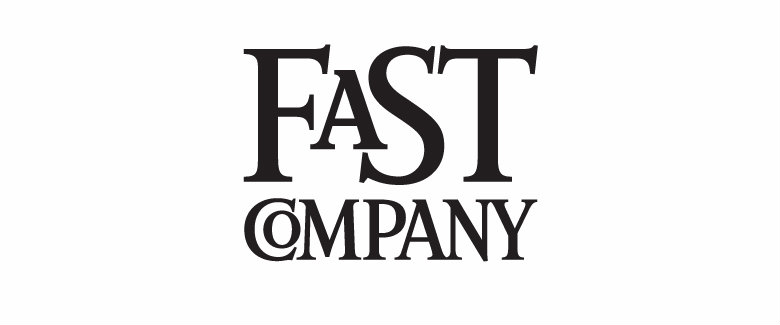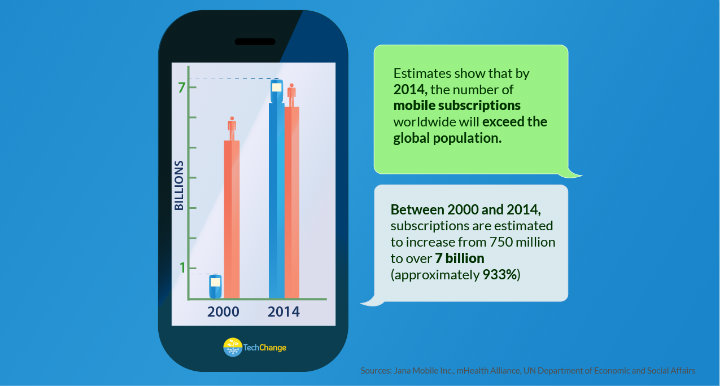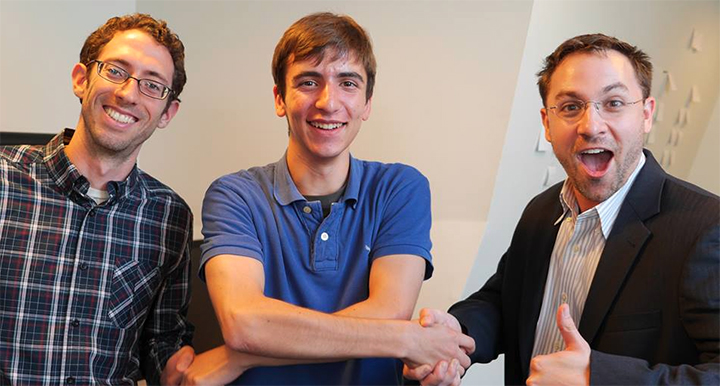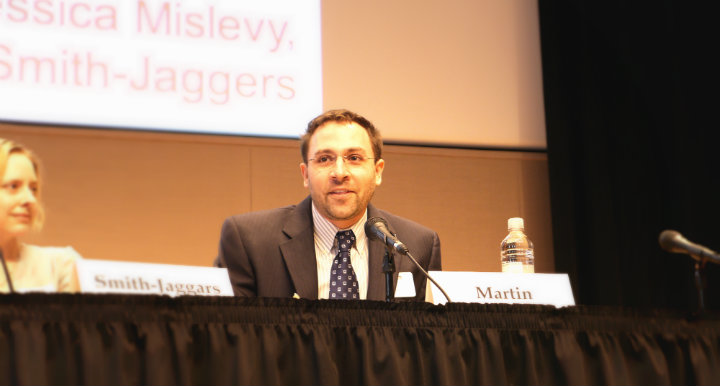It’s back to school time for many students including incoming Massachusetts Institute of Technology (MIT) freshman, Michael Holachek, who just spent his summer with the TechChange team in Washington, DC. As he starts off his university career in Cambridge, Massachusetts, he reflects on his time as a Junior Programmer Intern a.k.a. “Code Ninja” at TechChange.
How did you hear about TechChange? Earlier this year I was searching the web for summer tech internships in the DC area. That’s when TechChange came into the picture.
Why did you choose TechChange to spend your summer before beginning college? I wanted to work at TechChange for several reasons. First, the job posting for Junior Programmer Intern really appealed to me because it offered a chance to learn cutting-edge web development and system administration skills. I wanted to expand my programming experience in PHP, Javascript, bash, and other languages as well as apply it to real world projects.
But the posted job responsibilities were just part of the story; I also wanted to work at an organization that was rooted in helping people. TechChange’s personal expectations spoke to me: “[interns should exude] a passion for technology, a commitment to education, and a desire to help create social change.” Not only would I be gaining useful skills building software with the latest technologies, but I’d be contributing to a startup dedicated to the global community as well.
What are your interests? I’m interested in programming and web development, as well as Mandarin Chinese. I’m also intrigued by the hardware side of technology. I think I’ll major in electrical engineering and computer science in college. For fun I like playing the alto saxophone, biking, and kayaking.
How did you use your TechChange internship to explore your interests? Over the summer, I set up TechChange’s new server infrastructure, the system that hosts the TechChange website and course platform. I worked closely with TechChange developers to design a system that was both fast and secure, as well as scalable and reliable. The challenge of creating such a system from scratch let me explore everything from the low level hardware to the TechChange user experience. I used this freedom to explore many types of programming and software development, both directly for the current task and more experimental for the future. The practical experience helped me immediately apply my new skills as soon as I learned them. I’ve always been interested in learning more about Linux, networks and servers, and system administration.
I also would occasionally bring in a hobby electronics project I had been working on and explain it to our team. Many people in the office also spoke Mandarin, so it was fun to occasionally brush up on my conversational Chinese.
What did you learn during your time at TechChange? What specific skills have you gained? Every day at TechChange was filled with critical thinking, new programming skills, and business inspiration. I learned that being a sysadmin is difficult! But I also learned a lot about how a startup works.
Specific skills:
-
How to automate servers with Salt Stack
-
Writing quality documentation
-
How to configure nginx web server
-
How to set up WordPress Multiuser on nginx
-
WordPress plugin development
-
Google Pagespeed caching
-
Working in a small development team, ensuring strict adherence to version control standards and diligent task management
-
Time management
Did your TechChange experience end up going as you expected? Well, some might say that! The startup life was much more exciting than I expected—it certainly didn’t just involve programming. S’mores-making Fridays and the occasional “Tim Tam Slam” really kept it interesting.
Was there any aspect about TechChange that surprised you?
While at first I thought the TechChange office (fondly known as the “nerd attic”) was a bit small, I quickly learned that a cozy work area can actually a benefit. There was no communication barrier to asking questions or discussing something. Constantly being exposed to everyone else’s work was also really exciting because I got a preview of all the pieces of TechChange and how they fit together.
Would you come back to work at TechChange one day? Definitely. TechChange has a certain energy that makes me excited about why I’m interested in tech. The combination of a technically-minded but socially conscious group of animators, artists, entrepreneurs, programmers, and writers made my experience at TechChange unique.
What advice would you give to future TechChange interns?
-
Explore everything. TechChange gives you a lot of flexibility both in terms of how you work and what you work on, so make sure to appreciate it and reach out to explore your interests.
-
Bike to work. Although it might sound boring especially if you live far away, biking to work in good weather can be a meditative way to start the day.




